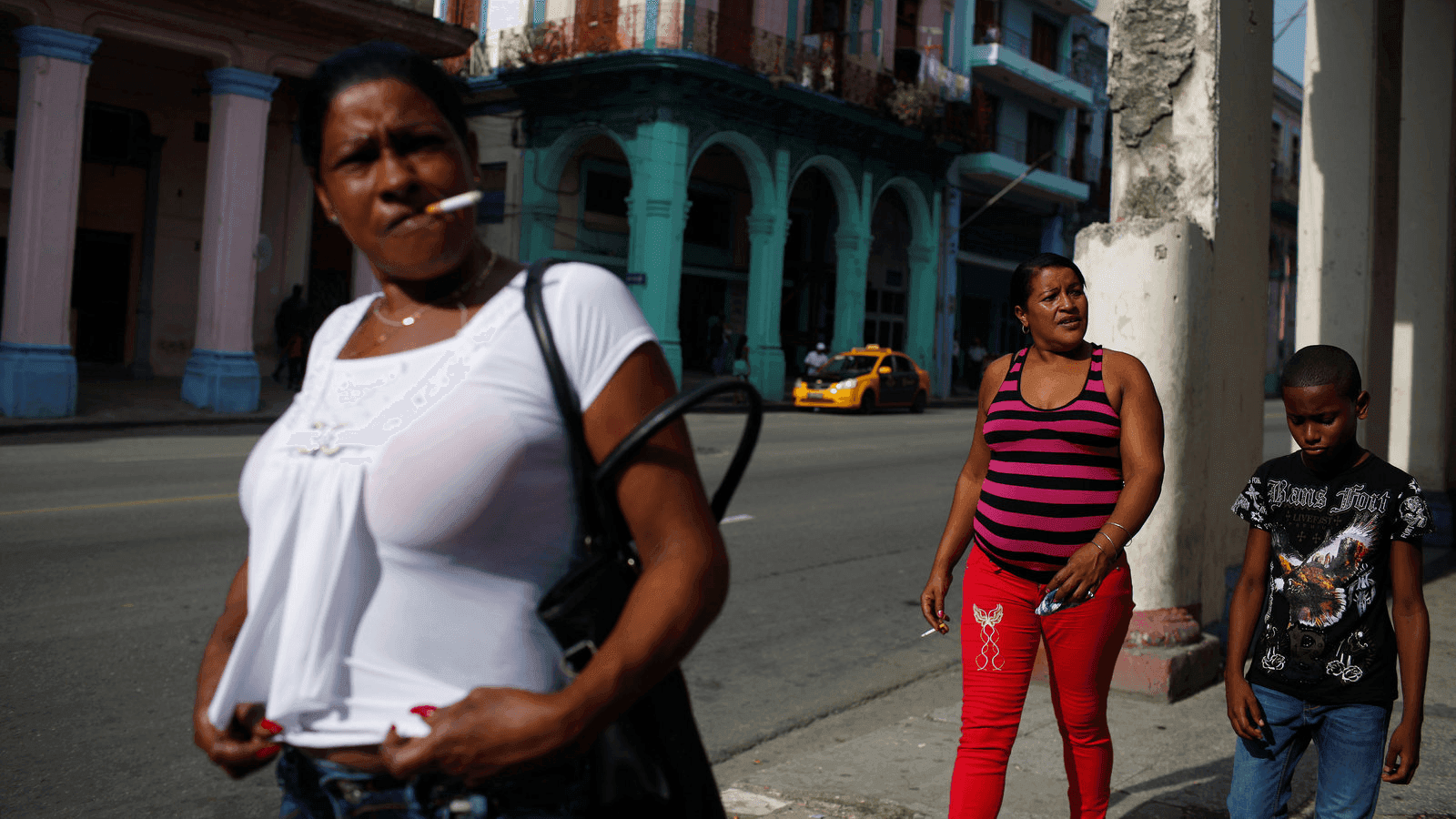What will change with Cuba’s proposed new constitution?
People walk along a street in Havana, Cuba, Aug. 12, 2018.
Cuba has begun a public debate on issues ranging from one-party rule and socialism to inequality, gay rights, private property and restructuring of the country’s government as it moves to replace a Cold War-era constitution.
A Communist Party-proposed overhaul of the island’s 1976 Magna Carta will be discussed in 35,000 workplaces and community meetings into November after its recent approval by the Parliament. Once the debate is wrapped up, the legislature will approve a new draft and submit it to a nationwide vote early next year.
Related: Cuba opens discussion of constitution overhaul to citizens abroad
The proposed version of the constitution in part codifies changes in Cuban society that have occurred since the 1991 collapse of the Soviet Union, long the country’s benefactor, and in part modifies how the nation will function in the future.
Related: Cuba solidarity groups support the revolution from the US
Here are the basics of how the new version would transform Cuba, how open the process really is, and what it means for investors.
Communism
The new version keeps the Communist Party as the only legal party and its role as the guide of the nation, stating this is irrevocable. Yet, it eliminates a reference in the current constitution to reaching a utopian communism and another banning the use of private property to exploit the labor of others.
Socialism
The new version doubles down on the state’s dominance over the means of production and land and the role of centralized planning. This too is deemed irrevocable. Still, for the first time there it recognizes the market as a fact of economic life, though it can be countermanded at will by the government.
Government
An appointed prime minister has been added at the national level to supervise the day-to-day operations of the government, in particular the state-owned economy.
Regions
Provincial assemblies modeled after the national assembly are eliminated in the new version and replaced by an appointed governor and deputy governor. The governor will preside over a provincial council made up of municipal leaders.
Municipalities
Terms of ward delegates to municipal assemblies are doubled to five years. The position of mayor has been added to that of president of the municipal assembly.
Private business and foreign investment
Private businesses and non-farm cooperatives are included for the first time in the new version as legitimate economic activity, and the role of joint ventures and other forms of foreign investment are upgraded from secondary to “important” or “fundamental.” At the same time, the “accumulation” of private property by citizens is banned.
LGTBQ rights
All prohibitions of discrimination in the new version add gender identity and the clause on marriage now refers to “persons” rather than man and woman.
Legal rights
The new version adds the presumption of innocence in criminal cases and the right to habeas corpus. For the first time a person can sue the state for damages and negligence. However, the judicial system remains unchanged and all lawyers are government employees.
Opposition doubts
Government opponents have blasted the top down process as a “fraud” and say the proposals will be pushed through with few substantive changes.
They question whether citizens will be free to speak their minds on issues such as one-party rule and capitalism versus socialism in a land where public debate on these subjects is taboo.
Bottom line
The proposals do not by themselves reduce risk or change the rules of doing business in Cuba, but they do further foreign investment and are another step toward a mixed economy and modern society, foreign businessmen and diplomats said.
Cuban officials say changes in government structure aim to improve accountability and administration of the state-run economy.
Marc Frank of Reuters reported from Havana.
